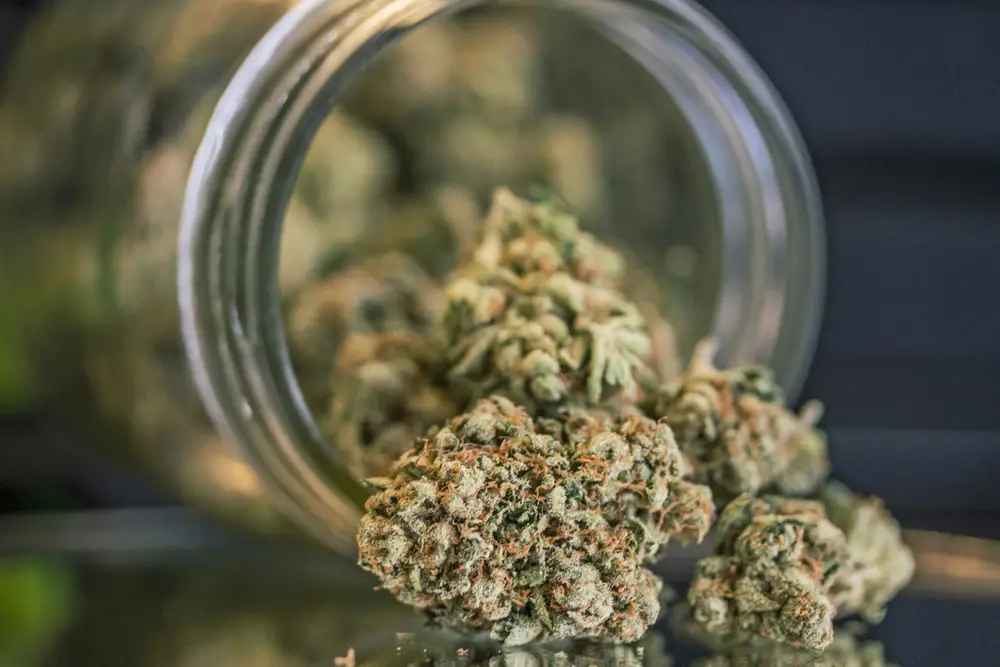With news that Arkansas activists have submitted well more than enough signatures to place their marijuana proposal on the presidential election ballot, we now have a clear picture of which statewide marijuana initiatives will be considered this November 5.

This November, three states will vote on measures to legalize recreational marijuana, one will vote to legalize medical marijuana, and one will vote to expand their medical marijuana law while creating a federal trigger for full legalization.
Below is a look at these five measures:
Arkansas
Arkansans for Patient Access (APA) has submitted around 150,000 signatures for their marijuana initiative, far more than the required 90,704 to make the ballot. If passed into law this November, the measure would expand the state’s medical marijuana law to allow patients to grow their own marijuana at a private residence, with the limit set at seven mature plants and seven immature plants, and it would remove the retail prohibition on certain smokeable marijuana products such as pre-rolls.
The initiative would also:
- Allow medical marijuana assessments and renewals to be conducted via telehealth.
- Allow out-of-state patients to receive protections under the state’s medical marijuana law.
- Expand new patient cards to last three years rather than one.
- Allow physician assistants, nurse practitioners and pharmacists to recommend medical marijuana in addition to physicians.
- Allow the above list of healthcare professions to recommend medical marijuana for any condition they deem appropriate, rather than having to follow the current list of qualifying conditions.
- Legalize recreational marijuana, with the possession limit set at one ounce, if the federal government deschedules marijuana.
Florida
In Florida, Amendment 3 would legalize recreational marijuana for adults 21 and older, allowing them to purchase and possess up to three ounces of cannabis, with a five-gram limit for concentrates. Supported by the Smart & Safe Florida campaign, which has raised over $60 million, the measure would also allow licensed marijuana retail outlets and medical cannabis dispensaries to sell marijuana for recreational use.
Given Amendment 3 is a constitutional amendment, it needs 60% support to be enacted into law. According to multiple recent polls, support among likely voters in above the 60% threshold.
Nebraska
Nebraska voters will decide on two medical marijuana initiatives this November. The first, the Nebraska Medical Cannabis Patient Protection Act, is designed to protect patients and healthcare providers who recommend medical cannabis. The second, the Nebraska Medical Cannabis Regulation Act, would allow qualified patients with a written recommendation from a healthcare provider to legally use, possess, and acquire limited amounts of cannabis for medical purposes. This initiative would also establish the Nebraska Medical Cannabis Commission to oversee the registration, production, distribution, and dispensing of medical cannabis.
A poll conducted by Data Targeting Inc., commissioned by the Neilan Strategy Group earlier this year, found that 70% of voters in the state support legalizing medical marijuana.
North Dakota
In North Dakota, voters will have the opportunity to vote on Measure 5, which proposes the legalization of recreational marijuana for all adults 21+. If passed, the measure would allow individuals to possess up to one ounce of marijuana, four grams of cannabis concentrate, and 300 milligrams of THC-infused edibles. Additionally, the initiative outlines the creation of a regulated market, where a limited number of marijuana retail stores and cultivation facilities would be licensed to operate.
South Dakota
South Dakota voters are set to revisit the issue of recreational marijuana with Measure 29, after previous attempts in 2020 and 2022 (in 2020 voters passed the measure but it was overturned by the courts). This year’s proposal would enable adults 21 and over to legally possess up to two ounces of cannabis and cultivate up to 12 plants for their own use. The initiative also proposes a framework for establishing licensed marijuana businesses, including retail outlets, to manage the sale and distribution of cannabis. Proponents of the measure say it was designed to bypass the issues that caused their 2020 measure to be overturned.
According to a recent survey by the South Dakota Polling Project, 45% of registered voters in the state are in favor of Measure 29, while 42% are opposed.






